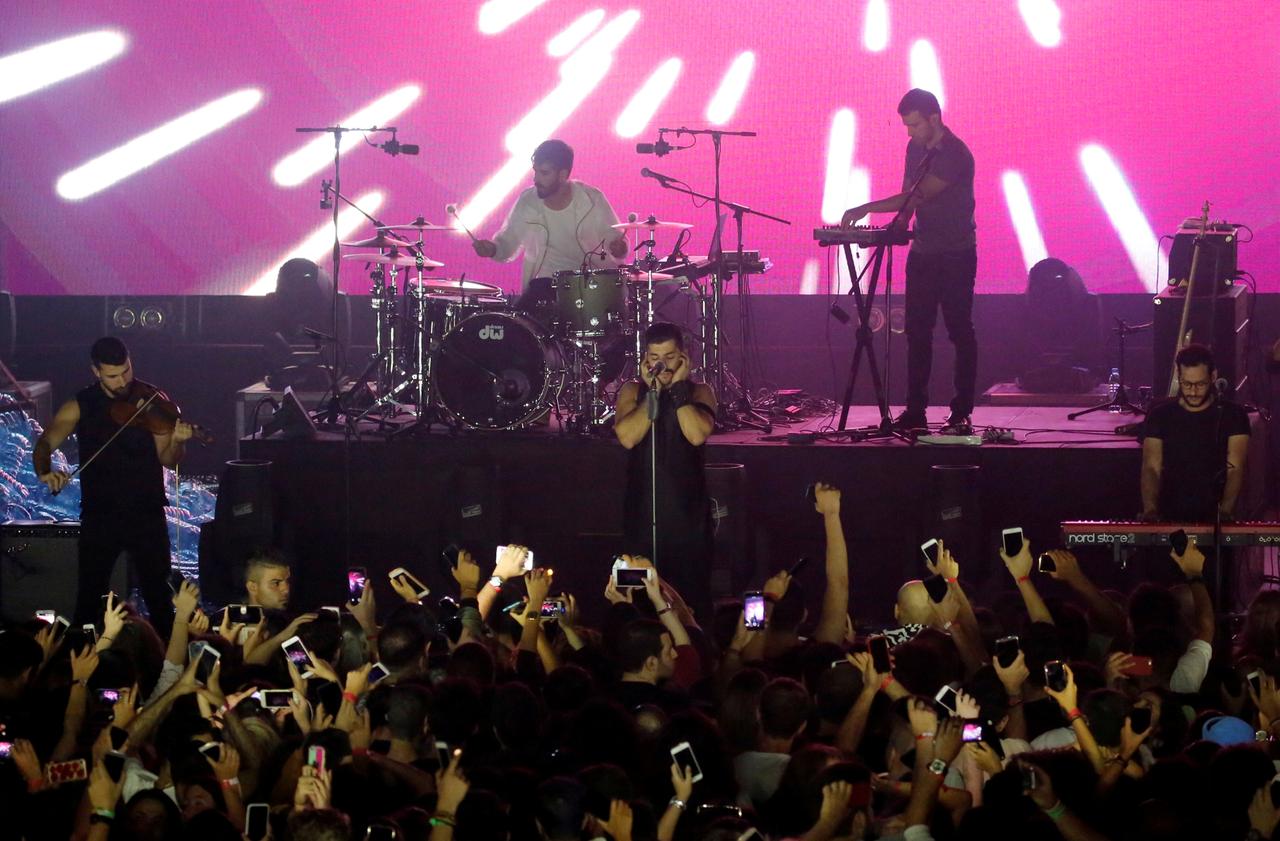
LONDON (Thomson Reuters Foundation) – The lead singer of one of the Middle East’s most popular bands said on Thursday he was heartbroken by rising homophobia in Lebanon, after death threats stopped him performing last month.
Organisers of the Byblos International Festival – one of the largest in Lebanon – said indie rock band Mashrou’ Leila’s slot was axed “to prevent bloodshed and preserve security” after a church said their songs violated religious values.
“There were Facebook pages and WhatsApp groups that were made so that people can start making inventories of what artillery they had at their disposal,” Hamed Sinno, the band’s openly gay frontman, told the Thomson Reuters Foundation.
“The plan was to go down there and start shooting people … You can’t possibly guarantee the audience’s security when the threats get that serious,” he said by phone from New York, ahead of a U.S. tour starting later this month.
Mashrou’ Leila, which means “overnight project” in Arabic as its members thought it was going to be temporary, has performed sell out shows – from Canada and France to Tunisia and Jordan – since its formation in 2008.
The four-piece band’s electro-infused rhythms, charged lyrics tackling sectarianism, gender equality and homophobia, and Sinno’s soaring vocals have garnered millions of downloads and views on Spotify and YouTube.
But they have also provoked critics, particularly religious clerics and state authorities, in Lebanon, which has been seen as a beacon of freedom in the socially conservative Arab world.
A 2018 court ruling that consensual same-sex relations are not illegal has not stopped Lebanese police using laws outlawing “sexual intercourse against nature” and the “violation of public morality” to harass LGBT+ people, Human Rights Watch says.
The advocacy group has spoken out against the prosecution of several television hosts and journalists for criticizing authorities over the last few years.
“It’s completely ridiculous, the kind of crackdown that’s been happening with free speech,” said 31-year-old Sinno, who has U.S. citizenship and moved to New York earlier this year.
“It’s frightening and unfortunately that’s also starting to extend to homosexuality … Homosexuality is starting to be treated again like something you can’t address in the press or the arts.”
After critics said religious metaphors in lyrics that dealt with the death of Sinno’s father were blasphemous, Lebanese police questioned two band members while a barrage of death threats and fake news were posted online, the singer said.
“To have my work perverted in that way really very hurtful and in a lot of ways traumatising,” said Sinno.
“It’s crazy to see that much hate. It really was overwhelming to get that constant deluge of death threats.”
The Byblos festival was not the first time that Mashrou’ Leila were blocked from performing. And Egypt arrested dozens in 2017 after fans raised a rainbow flag at one of their concerts in Cairo in a rare public show of support for LGBT+ rights.
“It’s just been a very rough few years,” said Sinno, who credits pictures of U.S. rockstar Kurt Cobain in a skirt and the novels of Lebanese-American author Rabih Alameddine for helping him come to terms with being gay.
“I did actually mistakenly believe that Lebanon was different from the rest of the region when it came to the freedoms that we had,” he said.
But after the Byblos festival cancellation, he said he “felt justified in leaving in a lot of ways and that sense of justification really broke my heart”.
Reporting by Rachel Savage @rachelmsavage; Editing by Katy Migiro and Hugo Greenhalgh. Please credit the Thomson Reuters Foundation, the charitable arm of Thomson Reuters that covers humanitarian news, women’s and LGBT+ rights, human trafficking, property rights, and climate change. Visit http://news.trust.org



